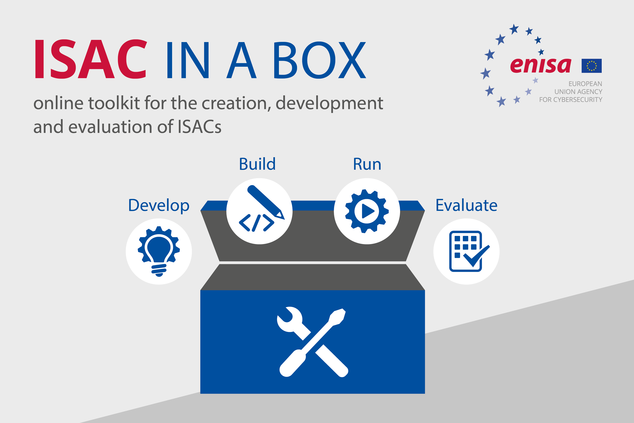European legislation, such as the Cybersecurity Act and the NIS Directive (NISD), promotes the creation of European and National Information Sharing and Analysis Centres (ISACs). ISACs are private public partnerships (PPPs) between stakeholders exposed to similar cybersecurity vulnerabilities and threats and they are usually formed by private sector initiative, in particular operators of essential services of the critical sectors. ISACs collect, analyse and disseminate actionable threat information to their members and provide them with tools to mitigate risks and enhance resilience.
ENISA’s task is to support the creation and development of ISACs and advise them to strengthen their cooperation, build trust and exchange information using tools and mechanisms that are beneficial for all parties. ENISA participates and offers advice and expertise in several European initiatives regarding the development of ISACs through:
- Connecting Europe Facilities (CEF) call for ISACs as a technical advisor;
- Inter-EU ISAC platform as a facilitator;
- European Energy (EE) ISAC as a member;
- European Financial (FI) ISAC as secretariat;
- European Maritime (EM) ISAC as a member;
- European Rail (ER) ISAC as a member.
More information can be found in the Infographic – Benefits of an ISAC
Objective and description of the toolkit
ENISA developed this comprehensive toolkit, following studies on the ISAC concept, to address the need to facilitate community building and collaboration across ISACs. The toolkit aims at providing practical guidance and the means to empower industry to create new ISACs and to further develop already existing ones.
The main success factors for ISACs are Trust and Sharing. If there is trust, information will be shared and added value will be created – ISAC in a BOX follows the same approach. It is divided in four phases and contains all activities, documents and tools needed to start, develop and evaluate an ISAC. Each phase includes the basic elements that need to be fulfilled to go to the next phase.
- Build phase: It’s all about setting the goals, participants and purpose for the ISAC; agreeing on the budget and the right cooperation mechanisms.
- Run phase: Governance is key to share information through meetings and develop trust and building capacities among the ISAC participants.
- Evaluation phase: Evaluation is an essential part of the ISAC lifecycle which helps to keep it on track, measure its impact and assess its momentum in order to bring it to the next phase.
- Develop phase: Time for action! This phase focuses on enhancing ISAC’s sophistication, its further development and outreach strategies.
Access the tool via this link: www.enisa.europa.eu/isac-in-a-box
Further information:
ENISA works on the topic of ISACs since 2009:
Good Practice – Guide on Information Sharing (2009)
Study – incentives and Barriers to Information Sharing (2010)
Study – Effective Collaborative models for ISACs (2018)
Opinion paper – ISAC Cooperation (2019)
Press contact:
For questions related to the press and interviews, please contact press(at)enisa.europa.eu
Stay updated – subscribe to RSS feeds of both ENISA news items & press releases!
News items:
http://www.enisa.europa.eu/media/news-items/news-wires/RSS
PRs:
http://www.enisa.europa.eu/media/press-releases/press-releases/RSS
Source: www.enisa.europa.eu


